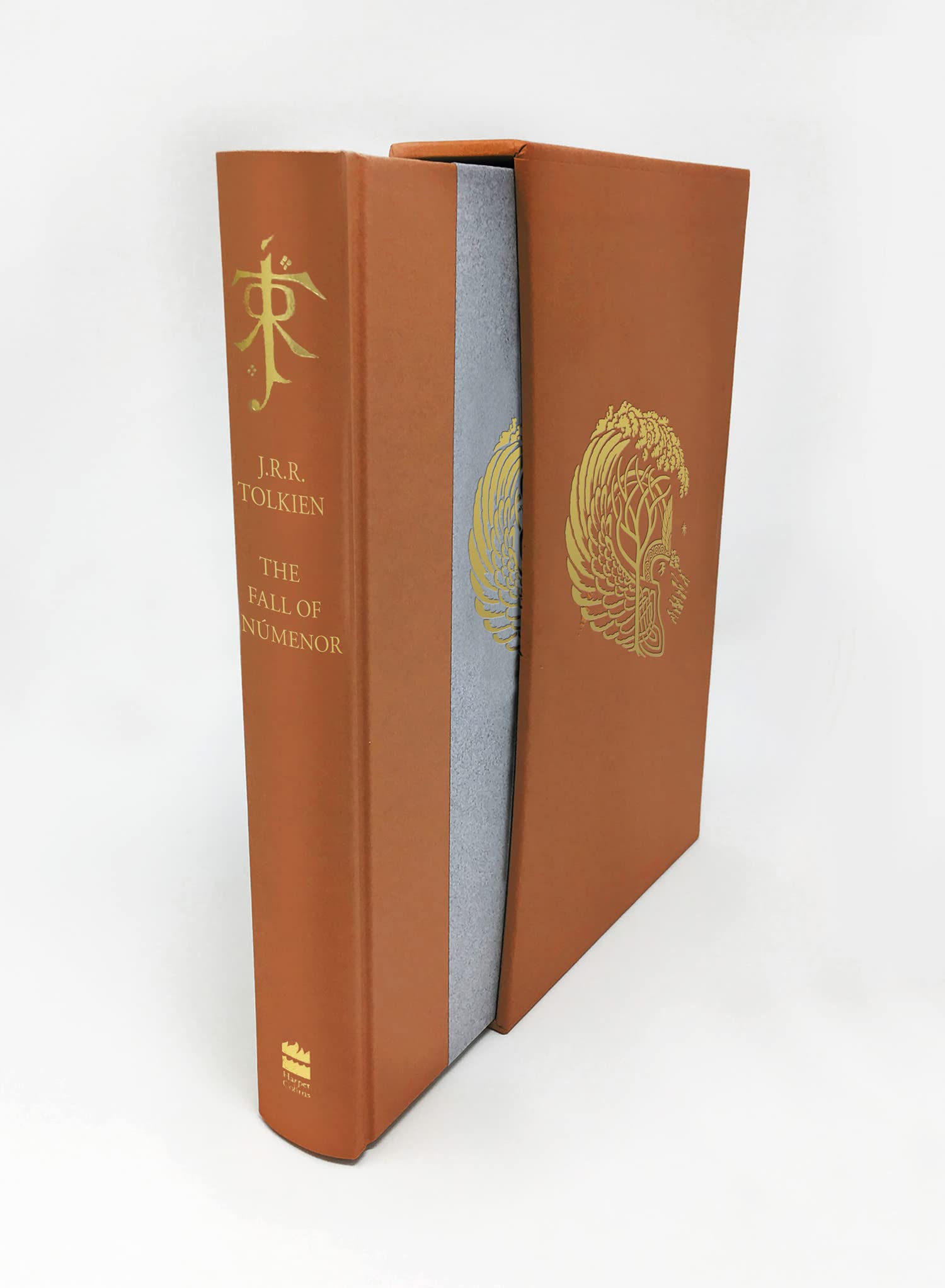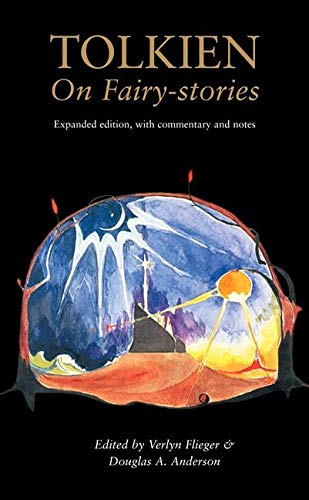Stu wrote:
I Also said that I *do* care who wrote it, but what version of what parts of the material presented in HoME in their various inconsistent drafts are canon? I don't know how anyone could answer that, given that taking the latest version of everything would not be consistent. Christopher had this problem in preparing the Silmarillion and did his best. Canon implies there is a single consistent truth. With Tolkien's writing, there isn't one, so canon is nonsensical.
I agree with Stu regarding the traditional use of canon.
But for Tolkien I have a working definition: the canon of the Legendarium is diachronic. Inconsistent or not if Tolkien wrote it, it is canon. Caveat is that CJRT coauthored S.
Is there a particular reason, now that Christopher is no longer with us, that people online are now increasingly referring to him as "co-author" in reference to The Silmarillion? I appreciate there was perhaps some reticence in discussing this while he was alive, but this is not a new idea or subject.
It was touched upon in The Silmarillion - Thirty Years On; and discussion online (inc. Carl H's circulation of Christopher's own response to this) also addressed the subject following the publication of Doug Kane's Arda Reconstructed. I haven't actually read The Great Tales Never End yet, but are people reading this & coming away with the impression that this is some sort of big reveal?
My limited understanding of this, particularly in respect to what Carl & Christopher both said at the time, is that people don't really understand the complexity of the manuscripts at all, and are speaking without sufficient knowledge or insight when they talk about Christopher adding to the mythology or "co-authoring".
Seems to be a bit of a thing to be saying right now.
It was touched upon in The Silmarillion - Thirty Years On; and discussion online (inc. Carl H's circulation of Christopher's own response to this) also addressed the subject following the publication of Doug Kane's Arda Reconstructed. I haven't actually read The Great Tales Never End yet, but are people reading this & coming away with the impression that this is some sort of big reveal?
My limited understanding of this, particularly in respect to what Carl & Christopher both said at the time, is that people don't really understand the complexity of the manuscripts at all, and are speaking without sufficient knowledge or insight when they talk about Christopher adding to the mythology or "co-authoring".
Seems to be a bit of a thing to be saying right now.
gobbledygook wrote:
"The Fall of Numenor will be perfect next read for fans who..."
They're basically legitimizing Bezos' thingy with this and putting it on par with Tolkien's writing? So it's canon?
I think they're trying to use Amazon's show as a selling point, as if saying "If you like the show, check out this book with the OG source material".
Of course the show is not canon. Honestly, the only things 100% canon for me are The Hobbit and The Lord of the Rings. Then at a second level all the writings edited by Christopher, and then those edited by other experts endorsed by Christopher (such as Brian Sibley and Carl H).
Having said that, it is almost impossible to define a single consistent source of truth in an imagined secondary world where much of what we have are edited manuscripts with inconsistencies and contradictions between them that were never resolved by JRR.
Khamûl wrote:
Is there a particular reason, now that Christopher is no longer with us, that people online are now increasingly referring to him as "co-author" in reference to The Silmarillion? I appreciate there was perhaps some reticence in discussing this while he was alive, but this is not a new idea or subject.
It was touched upon in The Silmarillion - Thirty Years On; and discussion online (inc. Carl H's circulation of Christopher's own response to this) also addressed the subject following the publication of Doug Kane's Arda Reconstructed. I haven't actually read The Great Tales Never End yet, but are people reading this & coming away with the impression that this is some sort of big reveal?
My limited understanding of this, particularly in respect to what Carl & Christopher both said at the time, is that people don't really understand the complexity of the manuscripts at all, and are speaking without sufficient knowledge or insight when they talk about Christopher adding to the mythology or "co-authoring".
Seems to be a bit of a thing to be saying right now.
I'm not on social media, but I haven't really ever seen the term "co-author" used for The Silmarillion, though I think it is a tricky one. He was certainly more than an editor. I'd imagine the essay in The Great Tales Never End will influence people more in the co-author direction, but I don't think an especially large number of people will have read that yet. I don't think it is anything new to anyone here, but I suppose it might be to the general audience.
From THGNE:
"Modifying and constructing the plot, inventing events and elements, is precisely what Christopher Tolkien has done in The Silmarillion, extending his activity beyond the publication of a book from existing manuscripts and into the production of fiction. "
Stu wrote:
I said I don't care about canon (I prefer to leave that for Star Trek and Star Wars fans to argue about -- where there are hundreds of authors). I Also said that I *do* care who wrote it, but what version of what parts of the material presented in HoME in their various inconsistent drafts are canon? I don't know how anyone could answer that, given that taking the latest version of everything would not be consistent. Christopher had this problem in preparing the Silmarillion and did his best. Canon implies there is a single consistent truth. With Tolkien's writing, there isn't one, so canon is nonsensical. And as fiction, I accept that some single truth doesn't matter anyway.
I agree with this. I would even go further and say that the inconsistencis and differing versions add to my reading experince when it comes to Middle-earth. Put in another way it adds to the illusion of time passed and history being passed down by mortals with various errors being introduced along the way as history slowly turns into myth. Fun :)
northman wrote:
I agree with this. I would even go further and say that the inconsistencis and differing versions add to my reading experince when it comes to Middle-earth. Put in another way it adds to the illusion of time passed and history being passed down by mortals with various errors being introduced along the way as history slowly turns into myth. Fun :)
That is exactly how I view canon in Middle-earth. Much like ancient Egypt, there are competing ideas of what is 'true'. We just ahve to put the information together as best we can from the available information.
Totally agree. It's also something Tolkien actively created & nurtured as part of his creative process i.e. different presentations of the same stories. It allowed him room for inconsistencies intended or otherwise. The published Silmarillion had no frame, a mistake as Christopher stated. All of this makes the idea of canon in Tolkien's work just far less important. And that seems to sit uneasily with some sections of the "fanbase"...
Tolkien Society Outstanding Contribution Award Winner and editor of “The Fall of Númenor” Brian Sibley to feature at Oxonmoot 2022
We are delighted to announce that Brian Sibley, winner of the Outstanding Contribution Award in the 2022 Tolkien Society Awards and editor of the recently announced volume The Fall of Númenor, will feature in the programme for Oxonmoot 2022.
https://www.tolkiensociety.org/2022/07 ... feature-at-oxonmoot-2022/
Bergelmir wrote:
I don't believe it's been announced here yet but I just realized that Amazon has updated the image of FoN deluxe ;)

Stu wrote:
From THGNE:
"Modifying and constructing the plot, inventing events and elements, is precisely what Christopher Tolkien has done in The Silmarillion, extending his activity beyond the publication of a book from existing manuscripts and into the production of fiction. "
Having read Vincent Ferré's piece I am quite convinced we are going to appraise Christopher Tolkien's achievements in addition to what we have already done - the literary executor, the editor.
It will now be the question as to whether CJRT's 'position' in the 'making of Middle-earth' goes beyond this function and the term 'co-author' needs to be applied, at least with the later publications, if not HoMe.
What is of interest to me is the question of copyright in this particular instance as I do believe the position of 'editor' would be treated differently to 'author' - and therefore the right to engage as the owner of these copyrights.













 4313
4313 1.95M
1.95M